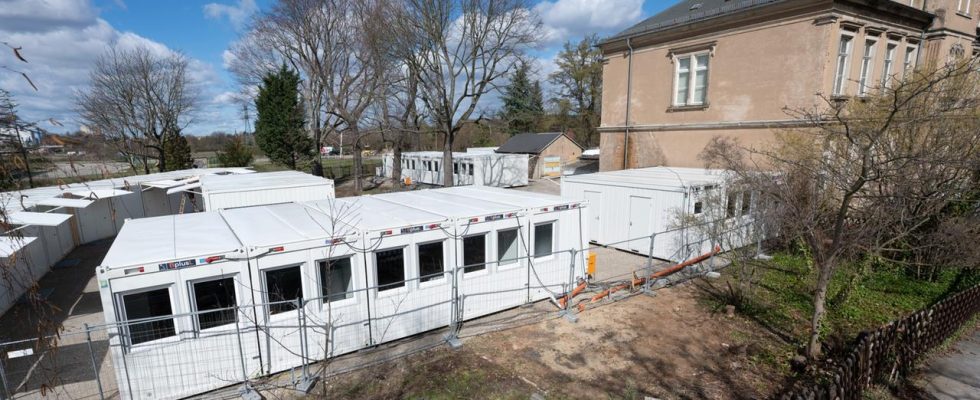There will be no more money from the federal government – that emerges from a draft paper for the forthcoming refugee summit ARD Capital Studio present. But the country leaders are sticking to their demands.
Before the migration summit next Wednesday in Berlin, there is no agreement in sight between the federal, state and local governments in the dispute over financing issues. The federal government had repeatedly emphasized that it would not provide any further funds for refugee aid. This is also evident from the draft of a draft resolution for the meeting, which ARD Capital Studio available exclusively.
In it, the federal government refers to its billions in aid, which it is providing despite the budget deficit – while the federal states and municipalities recorded surpluses. Only the lump sum for general refugee-related costs of 1.25 billion euros that has already been granted is to be made available in the coming years.
The accusation that the federal states would not pass on the full amount of the federal money to the cities and municipalities can also be found, at least indirectly, in the draft paper.
Country leaders renew their demands
Despite the draft resolution that was sent to the federal states on Saturday afternoon, the state leaders have emphatically renewed their demands for a higher refugee budget. “The federal government must at least double its current share of 2.75 billion euros,” said Hesse’s head of state Boris Rhein in an interview with the editorial network Germany – otherwise accommodation and integration could not be financed in the long term. The federal share of the costs must be based on the development of the number of refugees.
Rhein receives support from Baden-Württemberg’s state leader Winfried Kretschmann from the Greens: “The federal government must live up to its responsibility and must not leave the states and municipalities alone with the additional costs of the refugee crisis,” he said in the “BamS”.
Anke Rehlinger (SPD), Prime Minister of Saarland, called for “the use of unclaimed housing promotion funds to create affordable housing that can also be used temporarily to accommodate refugees”.
Common intersection on the subject of deportations
While the issue of funding remains controversial, there appears to be some agreement between the federal and state governments on the issue of deportations.
The federal government wants to make it easier for rejected asylum seekers to return to their home countries. According to the draft resolution, legal rules that have made deportations more difficult up to now are to be adjusted. Specifically, one wants, for example, to expand the search options of the police and extend the so-called exit custody from ten to 28 days.
Bavaria’s Prime Minister Markus Söder is primarily committed to taking a harder line towards the countries of origin. The CSU politician emphasized in the “BamS”:
We stand by the fundamental right to asylum. But in the case of countries that do not agree to an orderly repatriation, we must also consider cuts in development aid in the future.
In addition, the number of safe countries of origin must be expanded, according to Söder.
Saxony-Anhalt’s Prime Minister Reiner Haseloff (CDU) also sees the federal government as having a greater responsibility when it comes to the influx of migrants: “The federal government must finally ensure that immigration is controlled. If we in Germany are unable to act, trust will undermine more and more in our democracy”, he warned in the “BamS”.
Teuteberg: Not everyone can stay
The FDP domestic politician Linda Teuteberg sees it similarly. “The capacities and resources are finite and we have to focus on those who really need our protection,” she told the dpa news agency.
“Once the message got across that not everyone can enter and stay in Europe and that existing levers are consistently used to do so, the negotiating situation with transit and countries of origin would also change,” suspects the FDP politician. She said: “Europe must be able to protect refugees and borders.”
Faeser expects a solution within the EU
The Federal Government is already working on a European solution, emphasized Federal Interior Minister Nancy Faeser (SPD). She said to “BamS”: “I want us Europeans to finally act together – despite all resistance”. Faeser would like to use rapid asylum procedures at the EU’s external borders.
The EU Commission has already signaled its approval of the federal government’s plans. “It is important to have mandatory border procedures. This is necessary in order to control irregular migration and to ensure that returns are functioning, fast but humanely,” said EU Interior Commissioner Ylva Johansson of “Welt am Sonntag”. “The border procedures will also ensure that there will be significantly less secondary migration within the European Union,” added Johannson.

